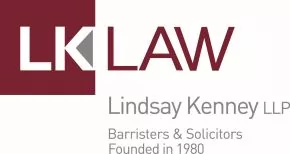Full transcript:
I'm often asked by clients, "what contractual terms should I seek?" Often this is a prelude to a discussion of what's fair in a contract. The answer depends on the exact circumstance, but the analysis is always the same. A contract is an agreement among two or more persons, that is enforceable at law. It is really no more than the allocation of risks and rewards. The balance of risks and rewards is a business decision, not a legal decision.
Some risks you simply won't be able to absorb, you should be up front about those with your client. Talk about reasonable limitations of liability. For example, temporal limitations of liability. English common law has long recognized that eventually it isn't practical to make a claim. Witnesses are no longer available, memories fade, documents are lost. British Columbia has statutory limitations, which changed June 1st 2013. The current statute provides for a basic two year limitation from the date of discovery of the claim, and an ultimate limitation of 15 years. Now it's not always an easy determination as to what limitation applies or when it starts to run. The British Columbia statute does not forbid different limitations between contracting parties. You could, for example, agree to a temporal limitation running from some fixed date, regardless of discovery. For example, an architect's liability may be limited to a period of time running from the substantial performance of a project. An agreement to this type of term would allocate risk to the professional before the expiry of the fixed limitation, and to the client, after the date. It's fair to both parties.
A professional's circumstances can change over time. He or she may want to retire for example. Is there any value to the client to maintain a claim against a professional who can no longer provide relief?
Monetary limitations of liability. Professionals are in the business of their profession. They're not typically in the risk indemnification business, as are insurance companies. They typically have only limited assets, and may not be able to bet the company on every job. A monetary limitation is a means of recognizing this reality upfront. This type of term is fair to both parties. The professional is not betting the company on every job, and the client recognizes the limitation of the professional's ability to provide relief. It may be able to make other arrangements to spread the risk.
A qualitative limitation of liability. Professionals should stand behind their work. If an error is made, the professionals will want to correct it. The client might be entitled to damages for breach of contract or negligence to put it back into the position it would have been in had there not been a breach. But is it practical for the professional to be responsible for more than just the direct consequences of its error? The parties could agree to a qualitative limitation. That is, what kind of damages the professional will be responsible for.
In summary, professionals should take responsibility for their work, but the practical reality is that they can't bet the company on every job, and they may not be able to fully protect the client from the consequences of errors. Recognition of these limitations up front is fair to both.
About Mackrell International – Canada - Lindsay Kenney LLP is a full service business law firm with offices in Vancouver and Langley, BC and a member of Mackrell International. Mackrell International – Canada is comprised of four independent law firms in Alberta, British Columbia, Ontario and Quebec. Each firm is regionally based and well-connected in our communities, an advantage shared with our clients. With close relations amongst our Canadian member firms, we are committed to working with clients who have legal needs in multiple jurisdictions within Canada.
This article is intended to be an overview and is for informational purposes only.

